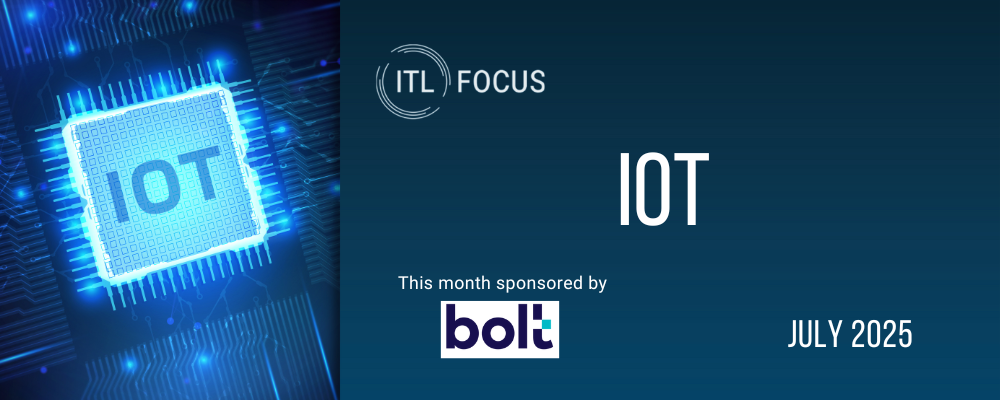The Internet is now an integral part of our daily lives, and we would struggle to imagine life without it. However, to date, growth has largely been driven by access to content and by speed.
We are now moving into the new phase of growth where the everyday "things" around us will be connected to the Internet. This is the Internet of Things (IoT) - it will have a profound impact on our daily lives and change the way we interact with our environment. It will also have a big impact on how industries operate and relate with their customers. This is particularly true for insurance companies, where there is an opportunity to move from being passive and reacting to losses, to being proactive and helping prevent them.
In short, the IoT will be a game changer for insurers.
In the commercial sector, we are familiar with the benefits of connectivity in smart buildings. When we go to a hotel, door locks are controlled with smart cards, and there are links to lighting and air conditioning to save energy and improve security. Fire systems are networked to sprinklers. Indeed, I'm not sure I'd book a hotel that gave me a metal key. More significantly, most modern commercial buildings would struggle to get insurance coverage without new technology.
The IoT will bring this same level of intelligence to the home.
Standard devices such as light switches, thermostats and door locks are being networked. Smartphones allow us to monitor and control air conditioning, as well as access and monitor security and lighting, with alerts if there is a problem. The first wave of connected appliances is now starting to roll out. Just as with commercial buildings, "interoperability" will become standard in homes because it makes them safer, more energy-efficient and easier to manage.
The smart home is already going mainstream. Big-box stores like Lowe's, Home Depot, Best Buy, Target and Sears have started to offer their own DIY smart home solutions. They are competing with the major service providers such as AT&T, Comcast, TWC and others that have developed their own consumer offerings. The entry of Apple, Google and Microsoft into the space with different consumer strategies is a clear sign that the market has arrived.
Many of these new entrants have recognized that data will be key to their future success in a connected world where devices will generate as much as we can handle and the ability to refine and exploit it will decide the winners and losers in many industries. This data is going to be particularly important to insurers, which have traditionally based their pricing on risk assessment. If a competitor has better data on which to base judgments, it will have the edge.
The IoT and access to data will reshape industry boundaries and create opportunities.
The IoT will allow insurance companies to move from the traditional passive role of underwriting risk to take a more active position by supplying smart home products and services. Other industries have already adopted this type of strategy. For example, the major cable companies and telcos now offer smart home products over the top of their broadband. These provide new revenue streams, leverage their core competencies, increase customer loyalty and provide a platform for growing new value-added services. Insurance companies could take a page out of the service providers' playbook and offer their own solutions to realize similar benefits.
The IoT and smart home can give insurers a more direct relationship with the consumer through daily interaction using touch points in apps and messaging. Insurers could also become more competitive by adopting pricing strategies that include direct sourcing and bundling with policies. Contrast this to consumers' traditional negative experience of bill paying on an annual or semi-annual basis for something they most likely didn't use.
Consumers would see insurance companies as a logical source for products and services that protect people and their property. Smart home systems can be DIY, offering protection for security, fire and flood. Moreover, they bring new levels of protection with innovation. For example, low-cost leak detectors and temperature sensors can automatically shut off the water supply when triggered.
The IoT is a real growth opportunity, and any business can scale as new connected devices come along. This can be done by offering devices and sensors that improve in-home healthcare and appliances that can be remotely monitored to reduce warranty support costs. These products and value-added services can drive new revenue streams, improve customer retention and reinvent the way consumers perceive their insurance provider. More importantly, the IoT secures access to the data from the things in the home that would help insurance companies manage risk.
If there is a nervousness to step outside the traditional industry boundaries, the alternative is to forge new partnerships with the companies that are deploying smart home solutions.
These companies have access to the data that will help insurance companies manage risk. For example, Lowe's has partnered with a number of leading insurance companies to trade data from the Iris smart home system. Clearly, data privacy is a major issue, so customers have to approve sharing. This can be achieved by offering a benefit on the policy, usually in the form of a discount.
Clearly, the IoT market is moving extremely fast, and it will challenge conventional wisdom. Just five years ago, the only connected device in home improvement retail was a smart door lock, and now there are hundreds - even dog bowls and toothbrush are becoming connected. If the IoT grows as predicted, every powered device will be IP addressable in the next 10 years. Ignoring this market is not a smart move.
While competing in the smart home space by offering consumers new products and services may seem daunting, the IoT will disrupt traditional industry boundaries, and attack is sometimes the best form of defense. Moreover, actively entering the market has the biggest upside. At a minimum, there is a need to find ways to partner to protect your position and get access to data to remain competitive. The leading insurance providers will be those that embrace the IoT and its impact.






